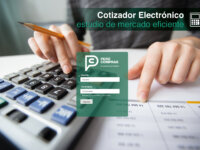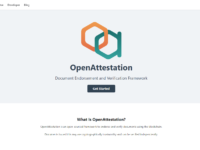The Ministry of Environment, Water, and Agriculture in Saudi Arabia proudly introduces the innovative mobile application called Livestock Chain as a groundbreaking solution leveraging Blockchain technology to effectively manage livestock data within the all country regions. This visionary application is designed to preserve the rich heritage of livestock while offering a secure mechanism for data storage and retrieval, by assigning each livestock a unique identifier.
Innovation Tag: Blockchain
Baia Mare has developed a community-driven approach to decontaminate heavy metal-polluted land using plants, addressing a critical public health issue. The project combines phytoremediation, smart mapping technology, and a digital reward system to encourage environmental action and sustainable development. This innovative model empowers citizens, improves urban health, and creates new green economic opportunities.
Aware of the ongoing digital transformation and user needs, HRDKorea (Human Resources Development Service of Korea)partnered with the private sector to leverage industry-leading technology for the creation of the Mobile National Technical Qualification Service. The certificate layout was fully reconfigured to fit the smartphone environment and used blockchain technology to develop a service that now allows users to immediately access their certificates on their mobile phones. The previous model…
The UAE Pass includes a ‘digital vault’, powered by blockchain technology, for storing users’ digital documents and sharing them with government departments for completing their transactions quickly without the need to provide paper documents. Users can request a digital version of their official documents and use them securely, to get services from service providers when needed. This feature eliminates the need for physical documents and visits, saving you time and effort.
The Fourth Industrial Revolution brings many opportunities, but also new challenges for public administration. The online training for the Fourth Industrial Revolution: New Technologies, teaches public servants and private sector employees the basics of AI, Blockchain, Virtual Reality, IoT, 3D printing, Robots, Drones and the Digital Economy. Through quizzes, games and many illustrative examples, participants can immerse themselves into the modern world of emerging technologies, which is crucial…
"Electronic Quoter"" is a Peruvian purchasing innovative tool which consists of the implementation of information service aimed at public entities that contract through the Electronic Catalogues of Framework Agreements. It allows them to estimate the price of the goods contained in their purchase request and has allowed them to reduce the time of the preparatory actions of the procurement process from 68.1 calendar days to only 1 day, for the benefit of 2,000 public entities and the citizens…
Singapore's Government developed OpenAttestation, an open-source framework to support endorsement and verification of documents using the blockchain. With this, an easy and reliable way to issue and validate tamper-proof certificates is readily available to the Government as well as any adopters locally or internationally.
The techDetector is the first technology radar giving an overview of emerging technologies that have the potential to influence the area of sustainable development in the future. It lists future technologies from all sectors of sustainable development and assesses their potential impact on sustainability and gender equality. The techDetector helps inform, sensitize and support foresight processes, enabling better decision-making by providing sound information on technological developments.
QualiChain project is guided by the vision to transform and revolutionise the domain of public and education as well as its interfaces with the labour market, policy making, public sector administrative procedures and the wider socio-economic developments, taking advantage of blockchain and other technologies. The ASEP pilot focused on optimising internal evaluation procedures pertinent to the selection and recruitment of public sector personnel with respect to the candidates’ qualifications.
Guided by a vision with people at its heart, WFP is harnessing the benefits of blockchain technology in its operations. Since 2017, WFP and its partners have been applying blockchain technology through the “Building Blocks” (BB) project to help achieve its mission while working with the wider United Nations/INGO community to push for greater efficiency across humanitarian and development operations.





